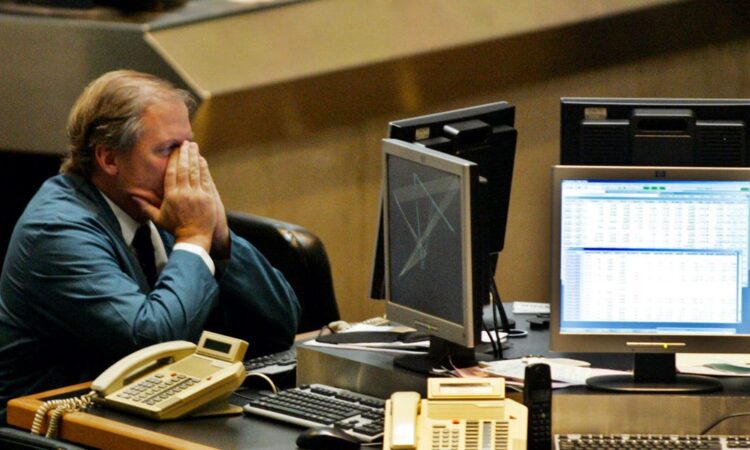
June’s nonfarm payrolls report may have beaten economists’ expectations with a robust 206,000 jobs added. But don’t bet on a soft landing outcome for the US economy as the Fed gets set to cut rates, says famed economist David Rosenberg.
In notes to clients this week, Rosenberg — the founder of Rosenberg Research who called the 2008 recession while working as Merrill Lynch’s chief economist — argued that the labor market is much weaker than headline numbers show, and shared several indications that the economy is on the brink of a downturn.
The first is that full-time employment, according to the Bureau of Labor Statistics’ Household Survey (as opposed to its survey of businesses which produces monthly payroll numbers), is down 1.2% year-over-year. Declines of this level have coincided with every recession since the 1970s.
Rosenberg Research
Second, overall employment growth on the household survey is about to dip negative year-over-year, another recessionary sign.
Rosenberg Research
Third, the year-over-year change in unemployment on the household survey has also risen to recessionary levels.
Rosenberg Research
The unemployment rate has also risen by 0.7% from recent lows. The average over the last 11 recessions has been 0.5%.
Rosenberg Research
As for the nonfarm payrolls report, while headline numbers were strong, downward revisions were made to prior months. The 12-month moving average of revisions is at -447,000.
“Since the beginning of 2023, the nonfarm payroll data have been revised down 82% of the time,” Rosenberg said in a July 8 note. “One thing we do know about revisions in the data, and in both directions, is that they have this historical tendency to be highly pro-cyclical and predictive of the direction of overall economic activity.”
Rosenberg Research
Rosenberg’s downbeat views on the labor market come amid his skepticism about the impressive rallies in major stock-market indexes like the Nasdaq 100 and the S&P 500.
In the July 8 note, he pointed to weak breadth beneath the surface of the broader stock market, evident in the few stocks driving the bulk of returns.
“Nvidia alone accounted for nearly one-third of the S&P 500’s total return in the first half of this year. Tack on Microsoft, Amazon, Meta and Eli Lilly, and 55% of the market’s return came from just those five stocks,” he said. “That is epic. So is the fact that 40% of the S&P 500 constituents are down for the year.”
Another example of poor performance outside of mega-cap stocks is the 4.3% decline in the small and mid-cap Russell 2500 index in Q2 while the S&P 500 rose 4.3%, he said.
Rosenberg’s views in context
While Rosenberg raises noteworthy concerns about the labor market, the door looks to be open for the Fed to achieve a soft landing, where the central bank brings down inflation without causing the economy to slow to the point of a recession.
The Consumer Price Index came down to 3% year-over-year in June from 3.1% in May, nearing the Fed’s long-term goal of 2%. And the Fed appears set to cut interest rates in September for the first time since it started it’s aggressive onslaught of hikes more than two years ago.
Still, as Rosenberg points out, some say the Fed needs to act urgently as the labor market weakens.
Neil Dutta, the head of economics at Renaissance Macro Research who has made the case for a soft landing over the last year, wrote in a piece for Business Insider this week that the Fed should cut in July.
“What the Fed does next will greatly affect the chances of avoiding a larger increase in unemployment,” Dutta wrote. “It spent the past few years raising interest rates in an attempt to slow rapidly increasing prices, but with inflation largely tamed, the risks have now shifted toward the labor market. Waiting too long to lower interest rates to support the economy will only increase the odds of the job market breaking down.”
Rosenberg has been consistently bearish on the US economy in recent months, while the labor market has continued to prove him wrong. Time will tell how much longer it can continue to do so.






